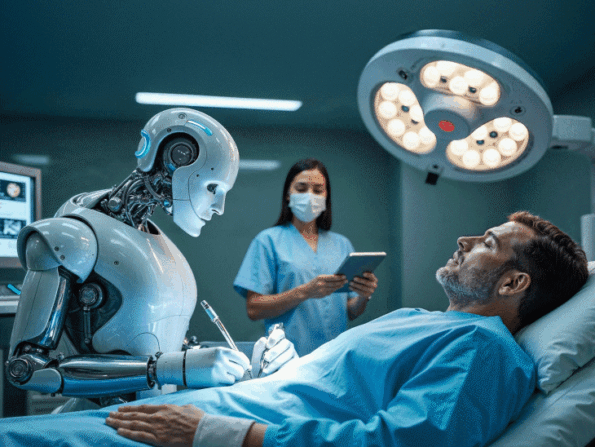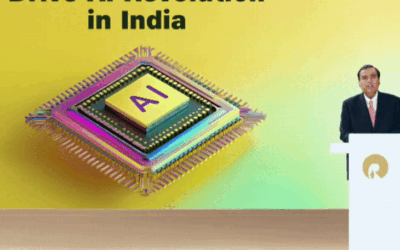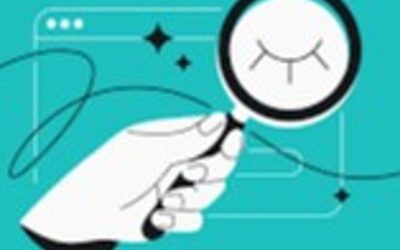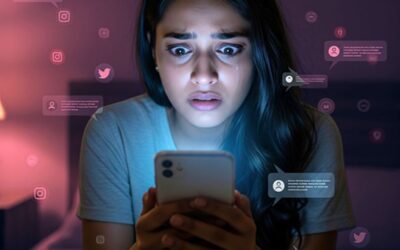Man lands in hospital after following ChatGPT’s advice:Do not trust AI for health advice get reliable information through these methods

These days internet and AI tools like ChatGPT claim to answer every question. But are they reliable for health-related advice? The answer is no, absolutely not. Recently, a story of a 60-year-old man in America shocked everyone.
He asked ChatGPT for salt alternatives and started using sodium bromide based on its advice.
As a result, he got bromide poisoning, which is a rare and dangerous condition. After being admitted to the hospital, he experienced confusion, paranoia (unreasonable suspicion of others) and mental health issues. A case in ‘Annals of Internal Medicine Clinical Cases’ reported a man who replaced salt with bromide after asking ChatGPT for alternatives. Three months of daily intake raised his bromide levels to 1700 mg/L, hundreds of times above normal. He was treated with IV fluids and recovered in three weeks. The case warns that AI health advice can be dangerous. Today we will learn from this story why never to take health advice from AI like ChatGPT. Also which sources of health information should not be trusted and what are reliable methods to get health information? Question: Why shouldn’t you take health advice from ChatGPT Answer: AI tools like ChatGPT provide general information, but they are not doctors. They are trained on old data and don’t understand personal health conditions. In the above story, the person misunderstood AI’s advice and used bromide, which cannot replace chloride. AI does not have medical training. Therefore, they can give wrong or incomplete advice. Question: What is health misinformation and why does it spread? Answer: Health misinformation is false or misleading content, like unproven claims that an herb cures cancer. It spreads easily on social media, blogs, and videos by exploiting fear, hope, or promises of quick fixes.
With little regulation, anyone can share anything, and echo chambers reinforce only what people already believe. Because science is complex, many end up trusting oversimplified but wrong health tips. Question: Which sources should not be trusted for health-related information? Answer: There can be several sources from where wrong information can be obtained. Such as- Question: How to identify health misinformation Answer: There are some signs – if someone promises a ‘miracle cure’ or instant treatment, like ‘this herb will cure all diseases’. Check the author’s credentials – are they a doctor or researcher? Look for evidence – are there references to peer-reviewed studies?
Be careful of content with fearful or emotional language. If information is one-sided and doesn’t mention any side effects or risks, be suspicious. Question: What are the ways to gather reliable health information Answer: Choose authentic sources for correct information. Such as- Dr. Ajay Nair says, check the website URL – .gov or .edu ones are more reliable. Keep in mind that this is not personalised health advice. Question: How to check website credibility Answer: Check who runs the ‘About Us’ section. Question: What precautions should be taken while getting health information from social media or apps Answer: Even if a post is from a friend on social media, check what the original source is. Use fact-checking sites like Snopes.
Before downloading apps, see who created it and what the reviews are. If an app asks for personal data, think – is it necessary? Always confirm with a doctor. Don’t share sensitive information on public Wi-Fi. Question: What to do if health information turns out to be wrong Answer: If any advice causes harm, consult a doctor immediately. Report misinformation – flag it on social media or inform agencies like WHO. Don’t blame yourself, instead learn from it. Make family and friends aware. In India, call helpline 1930 for cyber fraud if there’s a scam. Question: How to keep health information safe for elderly Answer: Elderly often become victims of online scams. Teach them – don’t open unknown links, use strong passwords, keep two-factor authentication on. Check sources while reading health books or news. Get regular checkups from doctors. If any scam is suspected, report to the police cyber cell. Question: What is the best way to get health advice Answer: The safest approach is to consult a doctor or healthcare professional, as they give advice tailored to your age, medical history, and condition. Online information should be used only for basic guidance, not decisions. Choose updated, reviewed books and health apps from trusted organisations. Most importantly, no source can replace a doctor’s expertise. We should learn that our health is not a game. Before taking advice from AI or internet, think, verify and consult a doctor. A healthy life is only possible with correct information. If someone in the family is following wrong tips, stop them immediately.
Search
Recent
- Watch: Chinese chess player spends 4 hours in heavy rain after loss
- ‘India, a long live economy’: Shivraj slams Trump’s ‘dead economy’ remark
- Munawar Faruqui Reveals “Abusive” Father Pushed His Mother To Death: “She Had Taken Poison”
- Anne Hathaway’s LOL Reaction To Her Accidental Fall On Devil Wears Prada 2 Set. Watch
- US court declares Trump Tariffs ‘illegal’; Donald Trump retaliates





